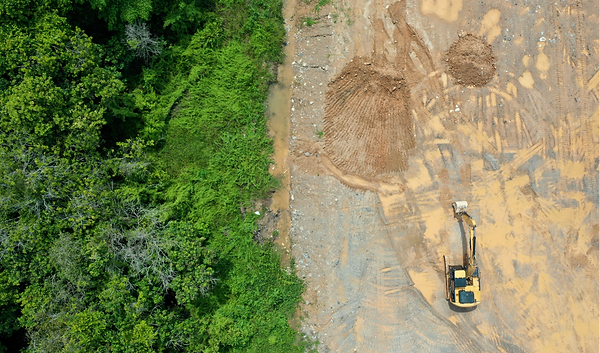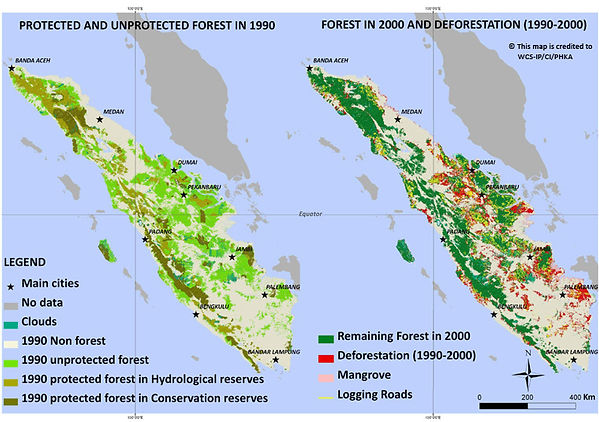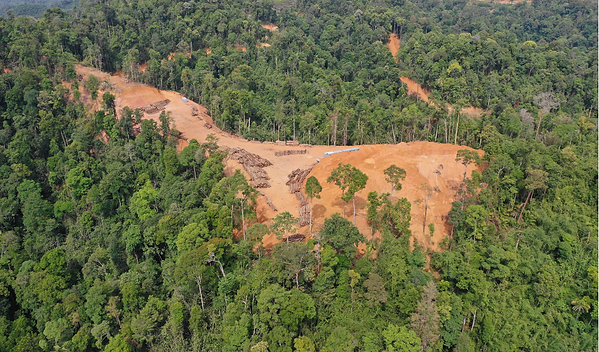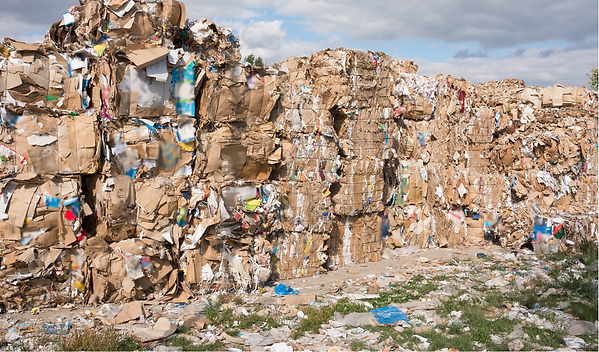
"Eco-friendly" paper packaging links to deforestation
Ima Kimura
Activists fighting deforestation in Indonesia are speaking out against efforts by the packaging and fast food industry to classify paper-based packaging as a sustainable alternative in EU law. Companies such as McDonald's, KFC, and Dunkin' Donuts are urging a delay in new regulations that prioritize reusable packaging in order to reduce plastic usage, packaging waste, and packaging-related emissions. However, campaigners argue that these calls to switch to paper ignore the harmful impacts of paper production on their communities. This article explores the perspectives of activists, the packaging industry, and the potential consequences of expanding the paper industry.
Opposition to Paper-Based Packaging:
Environmental activists and NGOs in Indonesia, such as Jikalahari, highlight the adverse effects of paper production on their communities. They argue that increasing pulp and paper production leads to deforestation, fires, social conflict, and conflicts with wildlife. Satellite imagery analyzed by Jikalahari reveals that an area equivalent to more than one and a half times the landmass of Belgium has been deforested in the Indonesian province of Riau over the past 40 years. The rapid growth of paper-based packaging in the EU could result in increased imports from countries like Indonesia where paper production trees grow faster than in colder regions. This poses a significant concern for ecosystems and communities in the Global South.
The European Commission's Packaging Regulations and Industry Lobbying:
The European Commission introduced its Packaging and Packaging Waste Regulations to encourage the transition to reusable packaging in November 2022. The proposals focus on setting reuse targets for several sectors, including restaurants, takeaways, and e-commerce. However, industry players, including companies like Pepsico, Dow, and L'Oreal, have lobbied extensively to promote single-use paper products as having lower carbon emissions and using less water and plastic than reusable alternatives. Industry lobbying efforts have significantly outweighed the meetings held by civil society groups on the same topic, raising concerns about adequate representation of different perspectives.
Environmental Concerns and Deforestation:
Campaigners warn that expanding the paper industry may lead to the conversion of new forest areas, exacerbating deforestation and its associated environmental impacts. The draining of peatland for paper plantations results in the release of CO2 into the atmosphere, contributing to climate change. The Environmental Paper Network has estimated that annual greenhouse gas emissions from peat oxidation caused by Indonesia's pulp and paper sector surpass the entire emissions of Finland. Additionally, plantation trees used for paper production do not support wildlife or local communities, unlike natural forests. Fires resulting from the paper industry contribute to smoke haze, health issues, and land conflicts in areas such as Pekanbaru in Riau. The risk of Indonesian forest fiber finding its way into the European market through larger markets like China, India, and Thailand further raises concerns about the impact of expanding the paper industry.
Challenges of Recycling and Circular Systems:
The packaging industry's claims about the sustainability of paper packaging over reusable options have focused on carbon emissions and recyclability. However, critics argue that the industry-funded studies supporting these claims have used flawed assumptions and lack transparency in data calculations. While the EU achieves high consumer recycling rates of paper (around 70%), the proportion of recycled paper in practice is smaller, especially for food packaging contaminated with grease and residues. The use of plastic linings in paper cups and other items poses challenges for recycling due to the mixed materials involved. Additionally, the reliance on virgin fibers for strength means that only 10% of paper, wood, and tissue used in the EU comes from recycled content. Activists argue that expanding the paper and pulp production system contradicts the concept of a truly circular economy and may contribute to the continued depletion of trees for single-use packaging.
Calls from the packaging and fast food industry to recognize paper-based packaging as a sustainable alternative in EU law have faced opposition from environmental activists worried about the harmful impacts of paper production, deforestation, and social conflicts in countries like Indonesia. The expansion of the paper industry in response to the demand for paper-based packaging poses serious environmental concerns, including carbon emissions, drainage of peatland, and loss of biodiversity. The ongoing debate highlights the need for a comprehensive assessment of the environmental and social implications of different packaging materials and the importance of considering the perspectives of all stakeholders involved before defining sustainability standards in EU law.



